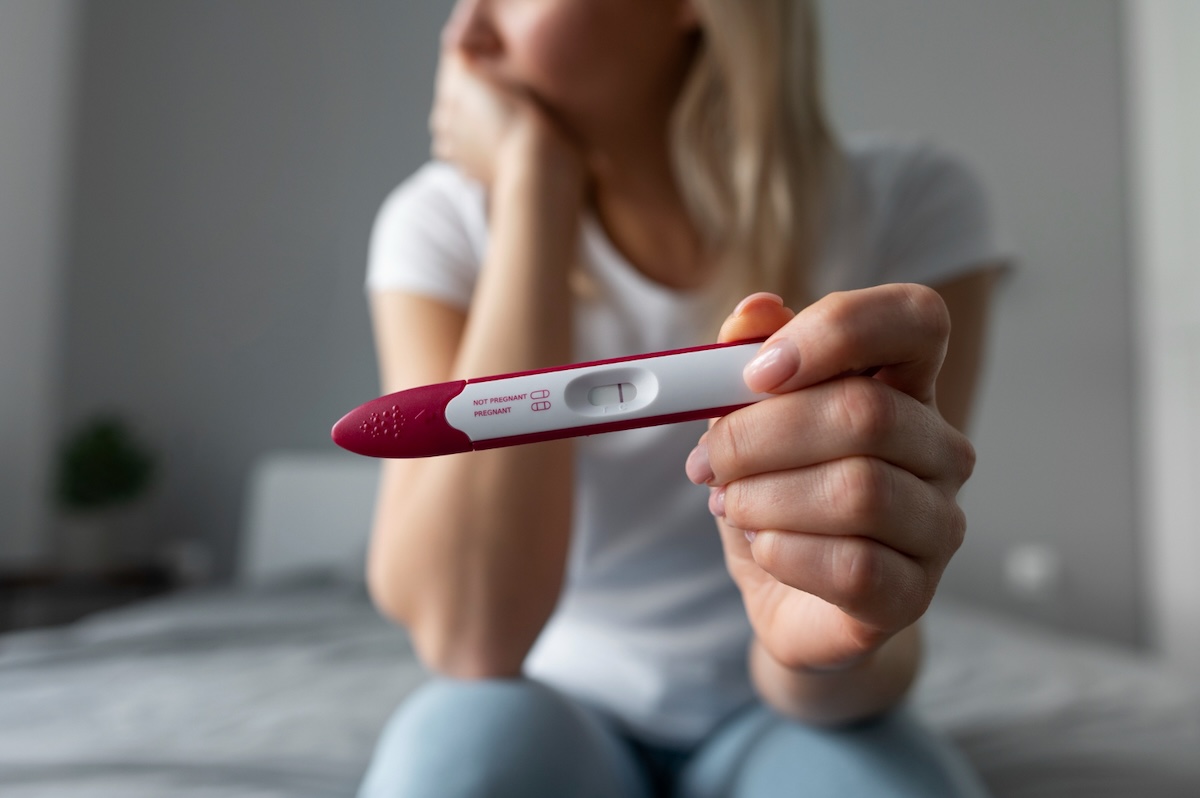Trying to get pregnant can be an exciting time, but it can also be filled with stress and questions—especially if things aren’t happening as quickly as you hoped. While every body is different and there’s no guaranteed formula for concieving, there are a few simple things you can do to support your fertility and boost your chances naturally.

These five tips focus on lifestyle, timing, and habits that can help prepare your body for conception. They are easy to follow, backed by doctors, and useful whether you’ve just started trying or have been trying for a while.
1. Understand Your Ovulation Cycle
One of the most important things you can do when trying to conceive is learn how your cycle works. Ovulation is the time during your cycle when your ovary releases an egg. This egg lives for about 12 to 24 hours, and it can only be fertilized during this short window. Sperm, on the other hand, can survive in the body for up to five days. That means your best chance of getting pregnant is to have sex during the few days leading up to and including ovulation.
To track ovulation, start by keeping a record of your menstrual cycle. You can use an app, a calendar, or simply note the first day of your period each month. Most people ovulate about 14 days before their next period, but this can vary. Signs of ovulation include a slight rise in body temperature, changes in cervical mucus (it becomes clear and stretchy), and sometimes mild cramps or breast tenderness.
Ovulation predictor kits, which test hormone levels in your urine, can also help you find your most fertile days. Once you know your fertile window, try to have sex every one to two days during that time.
2. Maintain a Healthy Weight
Your weight plays a bigger role in fertility than many people realize. Being underweight or overweight can affect your hormone levels and interfere with ovulation. For some, this may mean irregular periods or no periods at all. If your cycle is off, it becomes harder to know when you’re ovulating.
The goal is not to be “perfect” but to reach and maintain a weight that supports your reproductive health. Talk to your doctor about what a healthy weight range is for you. Small changes, like eating balanced meals, getting regular exercise, and avoiding crash diets, can help bring your cycle into balance.
It’s also important to note that even a modest amount of weight loss—about 5 to 10 percent—can make a difference in fertility for those who are overweight. For those who are underweight, gaining a few pounds can help the body resume normal ovulation.
3. Take Care of Your Diet and Nutrition
Eating a healthy, well-balanced diet can help prepare your body for pregnancy. Certain nutrients are especially important for hormone health, egg quality, and early pregnancy development. These include folate, iron, calcium, vitamin D, and omega-3 fatty acids.
Aim to eat a variety of fruits, vegetables, whole grains, lean proteins, and healthy fats. Foods like leafy greens, beans, eggs, nuts, fatty fish, and dairy can give your body the nutrients it needs to support fertility.
If you’re trying to get pregnant, it’s a good idea to start taking a prenatal vitamin with at least 400 micrograms of folic acid. This helps prevent neural tube defects in the baby and supports early development—even before you know you’re pregnant.
Also, try to limit alcohol, avoid smoking, and cut down on caffeine. While one small cup of coffee a day is generally considered safe, drinking large amounts of caffeine may make it harder to conceive.
4. Reduce Stress and Get Enough Sleep
Trying to get pregnant can come with a lot of emotional ups and downs. While stress alone doesn’t cause infertility, high stress levels may affect hormone balance and ovulation in some people. It can also lead to unhealthy habits like poor sleep or skipping meals, which in turn can impact fertility.
Finding ways to relax and take care of your mental health is just as important as caring for your physical health. Try gentle activities like yoga, walking, deep breathing, or journaling. Talking to a counselor or support group can also help you manage the emotional side of trying to conceive.
Sleep is another important part of the puzzle. Aim for 7 to 9 hours of quality sleep per night. Poor sleep can affect hormone levels, appetite, and energy—all of which play a role in reproductive health.
5. See a Doctor If You’re Concerned
If you’ve been trying to get pregnant for a while without success, don’t be afraid to ask for help. Most doctors recommend seeing a fertility specialist if you’ve been trying for 12 months or more (or 6 months or more if you’re over 35).
Your doctor can run tests to check ovulation, hormone levels, and overall reproductive health. Sometimes, a small issue like thyroid imbalance or irregular periods can be treated easily. In other cases, more advanced care may be needed.
Also, if you have a known condition like PCOS, endometriosis, or irregular cycles, it’s okay to check in with a doctor even earlier. They can help you create a plan that fits your needs and may improve your chances of getting pregnant sooner.

